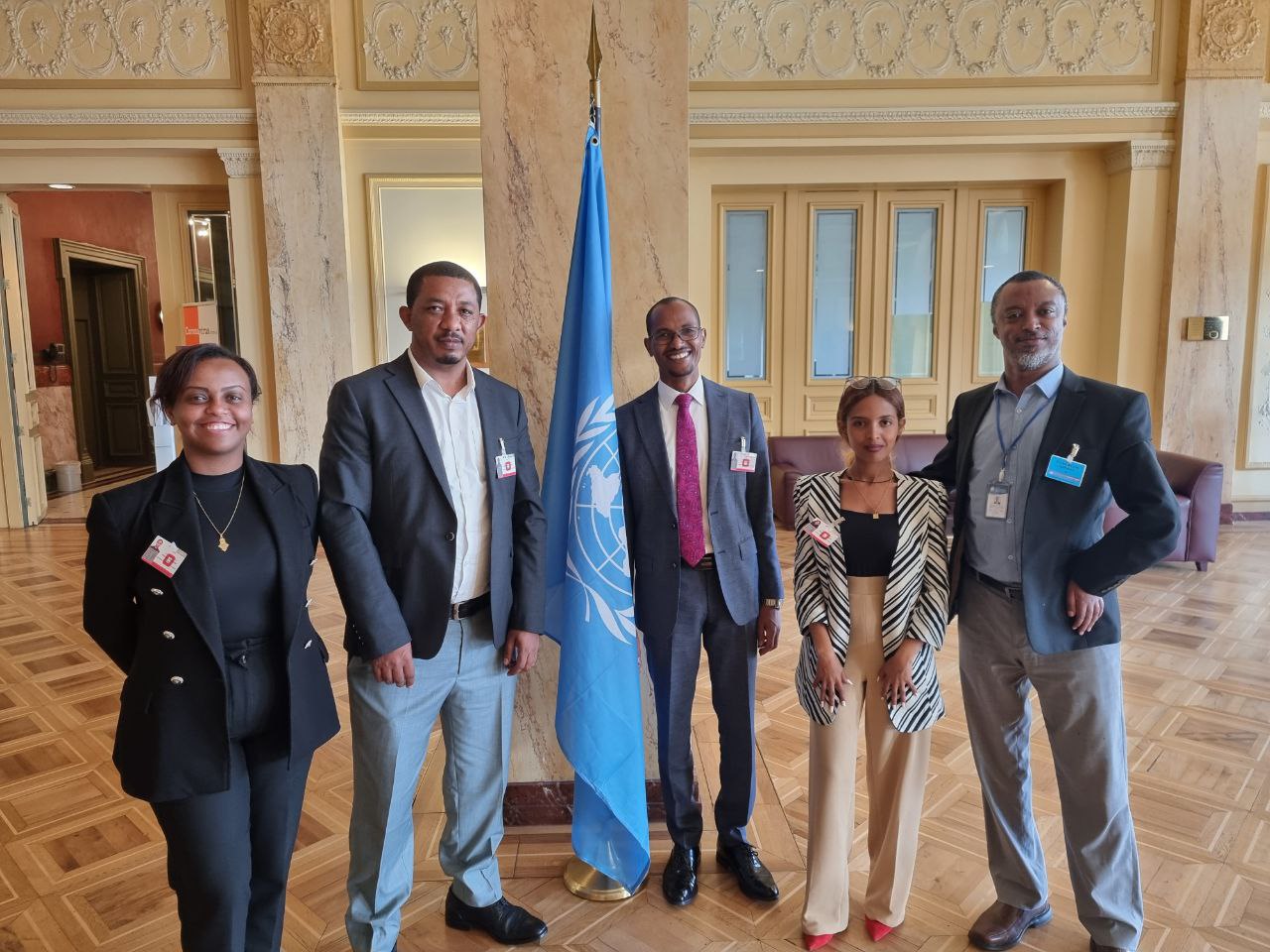A delegation of Ethiopian Human Rights Commission (EHRC) led by Commissioner Abdi Jibril (PhD) participated in the 136th Session of the United Nations Human Rights Committee during Ethiopia’s Periodic Review in Geneva, Switzerland.
The Human Rights Committee is the body of independent experts that monitor implementation of the International Covenant on Civil and Political Rights (ICCPR) by its state parties. The session which took place from October 17 to 18, 2022 included a briefing by EHRC to the Committee members and constructive dialogue between Committee members and Ethiopian government envoys.
During EHRC’s briefing, the Commissioner for Civil and Political and Socio-Economic Rights Dr. Abdi Jibril highlighted positive developments, challenges, major violations and recommendations with respect to the implementation of civil and political rights in Ethiopia. Amongst positive developments, institutional and legal reforms that contribute to the realization of the rights recognised in the ICCPR and the re-accreditation of EHRC to an A-status national human rights institution were mentioned.

Challenges and legal gaps pertaining to compensation and redress of victims of human rights violations, excessive use of force by security officials, extrajudicial killings in the context of the conflict in the northern part of the country, recruitment of child soldiers and enforced disappearances were some of the ongoing challenges and human rights violations mentioned in EHRC’s briefing to the Human Rights Committee. Restrictions on the right to peaceful assembly, to freedom of expression, issues relating to pre-trial detention and detention conditions were also discussed.
During the consideration of Ethiopia’s report, major issues ranging from consecutive declaration of state of emergency to freedom of expression and the detention of human rights defenders, journalists and political parties, the culture of impunity, sexual violence in the context of conflict were raised. Prison conditions, age of criminal liability of children, domestication and the gaps in the implementation of the African Union Convention for the Protection and Assistance of Internally Displaced Persons (IDPs) in Africa (Kampala Convention), were also among the discussion points.
The Chair of the UN Human Rights Committee on her part stated the remaining concerns of the Committee including the consecutive state of emergency that perhaps led to undue restrictions of the rights under the ICCPR, the vagueness of legislative acts such as the Anti-Terrorism, Hate Speech, Media Law Proclamations and their non-compliance of the criteria of necessity and proportionality. EHRC’s delegation also took the opportunity to meet with the Centre for Civil and Political Rights and the Geneva Academy on possible areas of collaboration. EHRC also met with the Secretariat for the Committee Against Torture.
